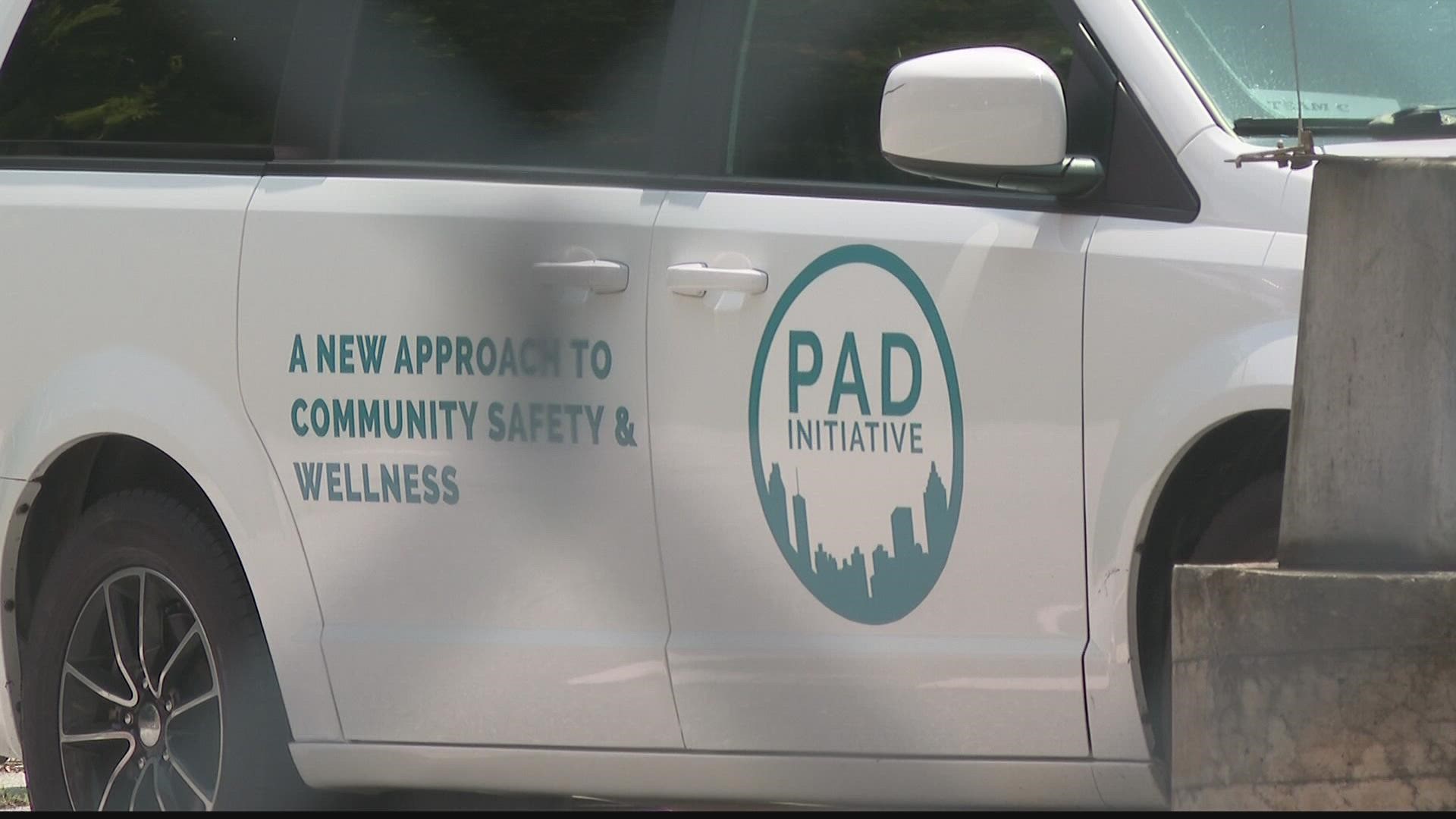ATLANTA — Mark Anthony McKay, Jr. moved to Atlanta from Los Angeles in 2020. Not long after he moved, he made his bed just off the sidewalk on Forsyth Street in Downtown and had a downward, personal spiral.
"I became engulfed by the evils that live within, and I found myself destitute, robbed, beaten, homeless," McKay said. "I expected to be in the ground, cremated, sitting on top of my parents’ mantle somewhere."
Atlanta's Policing Alternatives and Diversion Initiative, or PAD, found McKay and gave him temporary housing, food and clothes to get by. McKay credits PAD for saving his life.
"They really helped re-stabilize me and get me back to a place of recognizing myself," McKay said. "If it’s not a food voucher or a card to Publix or Kroger, they'll give me a new piece of clothing or wardrobe, a hygiene kit.”
Now, PAD is getting new funding. On Monday, Atlanta City Council approved the allocation of $4.5 million in American Rescue Plan funds to PAD. In 2019, the City of Atlanta allocated $400,000 to PAD. In 2020, it allocated $1.9 million and in 2021, the city budgeted $1.5 million for PAD. The organization also gets funding from Fulton County and private donors.
The 5-year-old nonprofit responds to calls for poverty, mental health and substance use. PAD's executive director, Moki Macias, said the increased funding will go to hire more staff. Currently, PAD has just under 40 staff members.
"This funding will allow us to expand our harm reduction response teams, the folks who show up when we get a call," Macias said. "It will allow us to expand our care navigation team, who work with people with open cases or who have been diverted by law enforcement and provide wraparound services long-term. It will allow us to double our outreach team.”
Macias said the initiative has grown in just the last year, registering double the calls to 311 each month for service. The average response time for PAD staff is just under 20 minutes, according to statistics given to 11Alive. Currently, about 400 people are receiving some type of long-term help or care.
“It’s those relationships that are really creating a kind of culture change in the city, to move us away from having a punitive approach to having an approach that really leads with care in order to address the community concerns that we see," Macias said. "It’s a benefit to the police department to not have to address calls that they’re not equipped to, and it’s a benefit to the community as a whole to connect people more immediately with services with less of a chance of escalation."
For McKay, the increased funding means a chance to receive more help and for others to pay it forward. Macias said a military veteran 11Alive interviewed last year is now helping others avoid jail and, instead, is now leading them to critical resources to survive.
“It’s more than just pacifying," McKay said. "It’s about sustaining and growing individuals up, so that this not only happens to them again, but they can help and we can help others.”

